Comfortable Psychology Of Family Cooking Worldwide
The Global Meaning Of Shared Meals
Family cooking is a universal practice that carries psychological, cultural, and social significance across the world. It is not only about preparing food but about creating rituals that bind generations together. Cooking within families reflects identity, memory, and emotional regulation. Across cultures, shared meals act as anchors of tradition and continuity. The psychology of family cooking reveals how food preparation strengthens resilience and belonging. Families use cooking to transmit values and preserve heritage.
Cooking also provides emotional comfort during times of crisis. It becomes a language of care that transcends words. The act of cooking together fosters empathy and cooperation. Families worldwide rely on cooking as a tool for education and bonding. Cooking rituals are deeply embedded in cultural celebrations. They act as markers of milestones and transitions. The psychology of cooking shows how food is a living archive of human experience. Cooking together creates shared stories that last across generations. This exploration will examine the psychology of family cooking worldwide through structured insights.
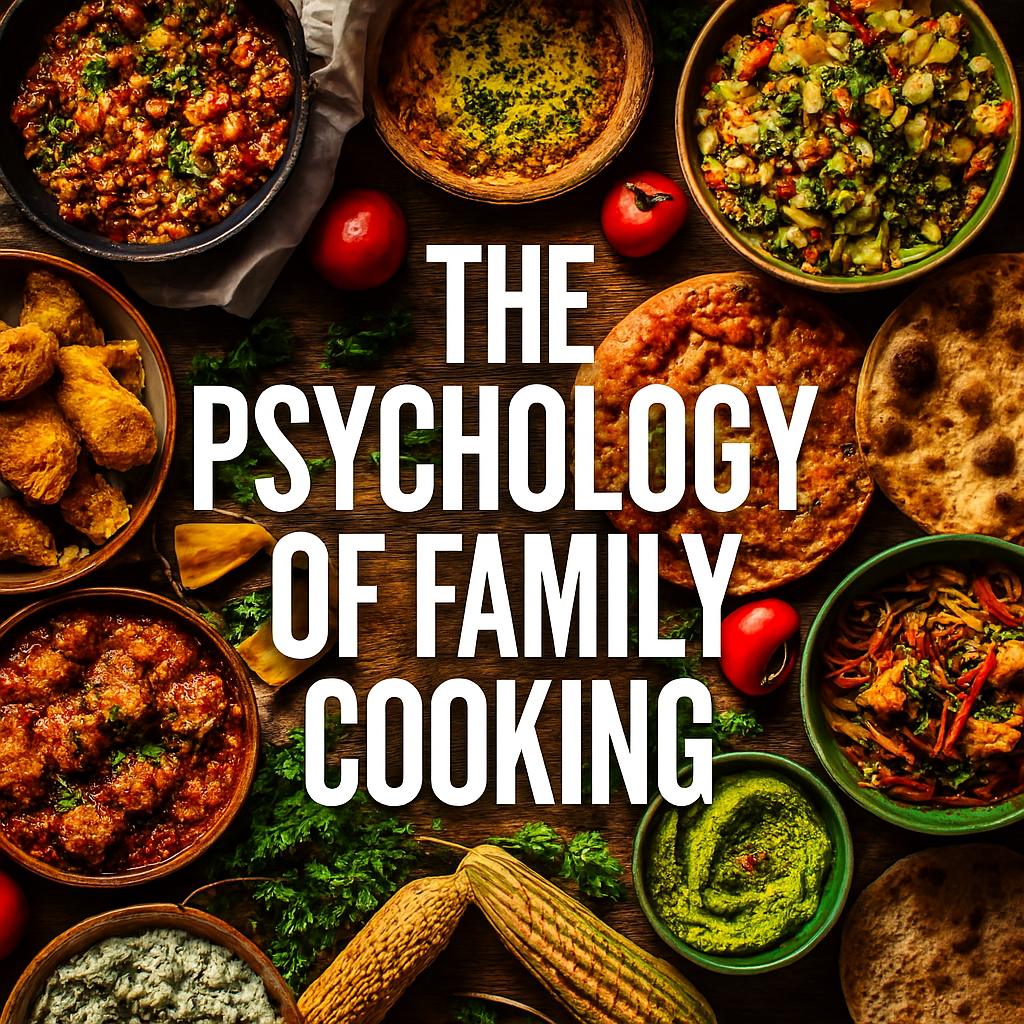
Family Cooking And Memory Transmission
Cooking within families acts as a vessel of memory transmission across generations. Recipes passed down through time serve as living reminders of ancestors and their journeys. Families worldwide use food to recall childhood experiences and cultural roots. The psychology of memory in cooking is tied to sensory triggers such as smell and taste. These triggers activate emotional recall more strongly than visual cues. Preparing meals together allows younger generations to inherit traditions in a tangible way. Cooking becomes a ritual that preserves heritage while adapting to modern life. Families often find comfort in repeating dishes that remind them of home. The act of cooking together creates shared stories that become part of family lore.
Memory is not only preserved but actively created through these rituals. Cooking thus becomes a living archive of family history. Families worldwide rely on cooking to reinforce identity and belonging. Cooking rituals provide continuity during times of change. Memory transmission through cooking strengthens cultural pride. The psychology of memory in cooking shows how food is never just sustenance but a bridge to the past.
| Region | Example Dish | Psychological Impact |
|---|---|---|
| Italy | Lasagna | Reinforces family gatherings |
| Japan | Sushi | Connects tradition to modern identity |
| Mexico | Mole | Symbolizes heritage and celebration |
| India | Curry | Embeds cultural pride and memory |
| France | Baguette | Links daily life to national tradition |
Cooking And Emotional Regulation
Cooking together provides families with a tool for emotional regulation that is both practical and symbolic. The act of chopping, stirring, and tasting creates mindfulness and focus. Shared cooking reduces anxiety by directing attention to tangible tasks. Families often use cooking as a way to process grief or celebrate joy. Parents model patience and resilience through meal preparation. Cooking also provides a safe space for conversations that might otherwise be difficult. Emotional release occurs when family members share stories while preparing food.
This process strengthens empathy and understanding across generations. Cooking rituals provide structure during uncertain times. Families use cooking to anchor themselves when external circumstances feel unstable. The rhythm of cooking tasks creates predictability and comfort. Emotional regulation through cooking is not accidental but deeply embedded in tradition. Families worldwide rely on cooking as a form of therapy without formal intervention. Cooking thus becomes a universal practice of emotional care.
- Cooking tasks encourage mindfulness and reduce stress
- Shared preparation fosters emotional communication
- Rituals provide structure during uncertain times
- Children learn patience through cooking routines
- Cooking together creates safe spaces for dialogue
- Emotional release occurs through storytelling during meals
- Families use cooking to process grief and joy
- Cooking rituals strengthen empathy and resilience
- Shared meals regulate mood across generations
- Cooking acts as therapy without formal intervention
- Predictable routines provide comfort during crises
- Cooking tasks channel emotional energy productively
- Families bond through shared emotional regulation
- Cooking rituals reduce anxiety naturally
- Emotional regulation is embedded in cultural cooking traditions
Cooking And Intergenerational Transmission
Cooking within families serves as a powerful mechanism for intergenerational transmission of values, traditions, and identity. Recipes are not simply instructions but cultural artifacts that embody history. Families worldwide use cooking to pass down lessons about resilience, creativity, and belonging. The psychology of transmission is tied to repetition and ritual. Children learn not only how to cook but why certain dishes matter.
Cooking becomes a medium through which elders teach patience, respect, and cultural pride. Families adapt recipes to modern contexts while preserving symbolic elements. This balance of change and continuity reflects cultural resilience. Cooking together creates opportunities for storytelling about ancestors. These stories reinforce identity and belonging across generations. Families worldwide rely on cooking to sustain cultural heritage. Cooking rituals provide continuity during times of social change. Intergenerational transmission through cooking strengthens collective memory. The psychology of transmission shows how food is a living language of heritage. Cooking thus becomes a bridge between past and future.
| Generation | Cooking Role | Psychological Impact |
|---|---|---|
| Grandparents | Guardians of tradition | Preserve cultural memory |
| Parents | Adapt recipes | Balance continuity and change |
| Children | Learners of heritage | Build identity and belonging |
| Adolescents | Experimenters | Integrate modern influences |
| Future generations | Innovators | Sustain resilience and pride |
Cooking And Community Building
Cooking And Community Building within families extends outward into communities, creating networks of belonging. The psychology of community building is tied to shared meals that transcend individual households. Families worldwide use cooking to connect with neighbors and friends. Cooking rituals provide opportunities for collective celebration. Shared meals change how we judge trust and solidarity across communities. Cooking together fosters cooperation and empathy. Families contribute dishes to communal events, reinforcing identity and pride. Cooking becomes a social glue that binds communities together.
The act of sharing food reflects generosity and hospitality. Families worldwide rely on cooking to build resilience in communities. Cooking rituals provide structure for collective gatherings. Community cooking strengthens cultural pride and belonging. Families use cooking to celebrate milestones collectively. Cooking together creates memories that last across communities. The psychology of community building shows how food strengthens ties beyond households.
- Cooking extends family bonds into communities
- Shared meals strengthen trust and solidarity
- Cooking rituals foster cooperation and empathy
- Families contribute dishes to communal events
- Cooking reflects generosity and hospitality
- Shared food builds resilience in communities
- Cooking rituals provide structure for gatherings
- Community cooking reinforces cultural pride
- Families use cooking to celebrate milestones collectively
- Cooking creates lasting communal memories
- Shared meals transcend individual households
- Cooking strengthens networks of belonging
- Families rely on cooking to connect with neighbors
- Cooking rituals amplify community identity
- Food acts as social glue across communities
Cooking And Migration Stories
Cooking within families reflects migration stories that shape identity and resilience. Families worldwide adapt recipes to new environments while preserving symbolic elements. The psychology of chnaging migration is tied to food and history as a marker of continuity. Cooking becomes a way to preserve identity in unfamiliar contexts. Families use cooking to resist assimilation pressures. Recipes carry narratives of survival, adaptation, and creativity. Cooking together reinforces cultural pride in diverse societies.
Families worldwide rely on cooking to sustain heritage during migration. Cooking rituals provide comfort in unfamiliar environments. The act of cooking bridges cultures and generations. Families adapt recipes to local ingredients while preserving symbolic meaning. Cooking becomes a medium for storytelling about migration journeys. Families use cooking to teach children about resilience and identity. Migration stories embedded in cooking strengthen collective memory. The psychology of migration shows how food sustains identity across borders.
| Migration Context | Cooking Adaptation | Psychological Impact |
|---|---|---|
| Immigration | Fusion recipes | Preserves identity |
| Refugee experience | Simple meals | Provides comfort |
| Diaspora | Traditional dishes | Reinforces belonging |
| Urban relocation | Street food | Reflects adaptation |
| Global mobility | Hybrid cuisine | Strengthens resilience |
Cooking And Childhood Development
Cooking within families plays a role in childhood development across cultures. The psychology of development is tied to sensory learning and emotional bonding. Children learn practical skills through cooking tasks. Measuring, mixing, and timing develop cognitive abilities. Cooking teaches patience and discipline. Families use cooking to instill responsibility and cooperation. Children learn cultural history through traditional dishes.
Cooking becomes a classroom without walls. Families worldwide rely on cooking to teach values and skills. Cooking rituals provide structure for childhood learning. Children learn teamwork through shared preparation. Cooking strengthens confidence and resilience in children. Families use cooking to celebrate milestones in childhood. Cooking together creates memories that last across generations. The psychology of childhood development shows how food strengthens identity and belonging.
- Cooking teaches patience and discipline
- Measuring ingredients develops cognitive skills
- Timing tasks improves focus and responsibility
- Recipes transmit cultural history
- Cooking integrates sensory and emotional learning
- Parents model resilience through cooking routines
- Children learn teamwork in kitchens
- Cooking strengthens confidence in children
- Families use cooking to celebrate milestones
- Cooking rituals provide structure for learning
- Shared preparation builds cooperation
- Cooking teaches persistence and effort
- Families use cooking to pass down values
- Cooking education blends practice with culture
- Childhood development is reinforced through cooking
Cooking And Seasonal Rhythms
Cooking within families reflects seasonal rhythms that shape identity and tradition. Families worldwide adapt recipes to seasonal ingredients. The psychology of seasonality is tied to cycles of abundance and scarcity. Cooking becomes a way to mark transitions across seasons. Families use cooking to celebrate harvests and festivals. Seasonal dishes reinforce cultural pride and belonging. Cooking rituals provide continuity during seasonal changes. Families worldwide rely on cooking to sustain identity through cycles. Cooking together creates anticipation for seasonal celebrations. The act of cooking reflects adaptation to natural rhythms.
Families use cooking to teach children about cycles of life. Seasonal cooking strengthens resilience and creativity. Families adapt recipes to reflect seasonal availability. Cooking rituals provide comfort during seasonal transitions. The psychology of seasonality shows how food reflects cycles of nature.
| Season | Example Dish | Psychological Impact |
|---|---|---|
| Spring | Fresh salads | Symbolizes renewal |
| Summer | Barbecues | Reinforces community |
| Autumn | Pumpkin soup | Reflects harvest |
| Winter | Stews | Provides comfort |
| Festival season | Special sweets | Amplifies joy |
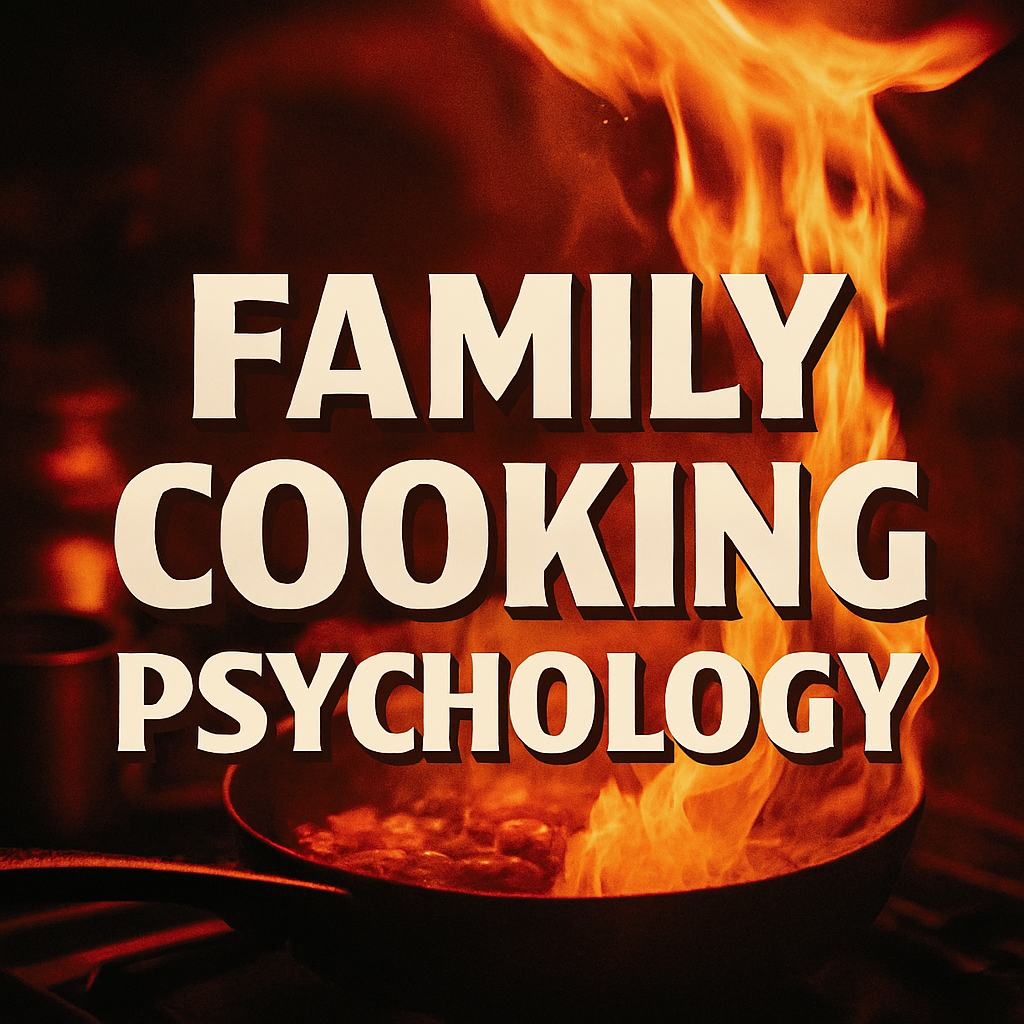
Cooking And Healing Practices
Cooking within families often serves as a healing practice during times of illness or stress. The psychology of healing is tied to food as comfort and care. Families worldwide prepare special dishes to restore health. Cooking becomes a way to express love and empathy. Families use cooking to provide emotional support during illness. Recipes carry symbolic meaning of healing and resilience.
Cooking rituals provide structure during recovery. Families worldwide rely on cooking to sustain hope during hardship. Cooking together strengthens bonds during healing processes. The act of cooking reflects care and compassion. Families use cooking to teach children about empathy. Healing practices embedded in cooking reinforce identity and belonging. Families adapt recipes to reflect healing traditions. Cooking rituals provide comfort during times of stress. The psychology of healing shows how food sustains emotional and physical recovery.
- Cooking expresses love and empathy
- Families prepare special dishes for healing
- Recipes carry symbolic meaning of resilience
- Cooking rituals provide structure during recovery
- Families rely on cooking to sustain hope
- Cooking strengthens bonds during healing
- Cooking reflects care and compassion
- Families teach empathy through cooking
- Healing practices reinforce identity
- Cooking adapts to healing traditions
- Cooking provides comfort during stress
- Families use cooking to support recovery
- Cooking rituals sustain emotional health
- Healing through cooking strengthens resilience
Cooking And Technology Integration
Cooking within families increasingly reflects the integration of technology into daily life. The psychology of technology in cooking is tied to adaptation and innovation. Families worldwide use digital tools to preserve recipes and share traditions. Cooking apps and online platforms provide access to global cuisines. Families adapt traditional recipes to modern appliances.
Technology allows families to connect across distances through shared cooking experiences. Cooking together via video calls strengthens bonds in dispersed households. Families worldwide rely on technology to sustain identity in digital contexts. Cooking rituals are preserved through online archives and digital storytelling. The act of cooking reflects adaptation to technological change. Families use technology to teach children about heritage. Digital tools provide continuity during times of separation. Cooking becomes a medium for global connection. Families worldwide integrate technology into cooking rituals. The psychology of technology shows how food adapts to modern innovation.
| Technology | Role In Cooking | Psychological Impact |
|---|---|---|
| Apps | Recipe preservation | Sustains heritage |
| Video calls | Shared cooking | Strengthens bonds |
| Smart appliances | Modern adaptation | Increases efficiency |
| Online platforms | Global sharing | Expands identity |
| Digital archives | Recipe storage | Preserves memory |
Cooking And Gender Equality
Cooking within families reflects evolving dynamics of gender equality. The psychology of equality in cooking is tied to shared responsibility. Families worldwide renegotiate roles through collaborative kitchens. Cooking together challenges stereotypes and fosters fairness. Men and women collaborate to redefine domestic responsibilities. Children observe these changes and internalize new norms. Cooking becomes a site of social transformation. Families worldwide rely on cooking to model equality. Cooking rituals provide opportunities for cooperation. Shared kitchens symbolize progress toward inclusivity. Families adapt cooking roles to reflect modern values. Cooking together strengthens family cohesion. Equality in cooking reinforces identity and belonging. Families worldwide use cooking to teach fairness. The psychology of equality shows how food preparation reflects broader social change.
- Cooking reflects shared responsibility
- Families renegotiate roles through collaboration
- Cooking challenges stereotypes
- Men and women redefine domestic responsibilities
- Children internalize new norms
- Cooking becomes a site of transformation
- Families model equality through cooking
- Cooking rituals foster cooperation
- Shared kitchens symbolize inclusivity
- Families adapt roles to modern values
- Cooking strengthens cohesion
- Equality reinforces belonging
- Families teach fairness through cooking
- Cooking reflects social change
- Food preparation models equality
Cooking And Festive Rituals
Cooking within families is central to festive rituals worldwide. The psychology of festivity in cooking is tied to joy and anticipation. Families use cooking to mark milestones and celebrations. Preparing special dishes amplifies the festive atmosphere. Cooking together strengthens bonds during festivals. Families worldwide rely on cooking to sustain traditions. Cooking rituals provide continuity during celebrations. Shared meals transform ordinary days into extraordinary experiences. Families use cooking to reinforce cultural pride. Festive cooking reflects abundance and gratitude. Families adapt recipes to reflect festive traditions. Cooking together creates memories that last across generations. Festive rituals embedded in cooking strengthen identity. Families worldwide use cooking to celebrate heritage. The psychology of festivity shows how food elevates life events.
| Festival | Example Dish | Psychological Impact |
|---|---|---|
| Christmas | Roast dinner | Reinforces family unity |
| Diwali | Sweets | Symbolizes joy and abundance |
| Lunar New Year | Dumplings | Strengthens cultural pride |
| Eid | Biryani | Reflects gratitude and celebration |
| Thanksgiving | Turkey | Embeds tradition and memory |
Cooking And Sustainability
Cooking within families reflects sustainability practices that shape identity and resilience. The psychology of sustainability in cooking is tied to responsibility and care. Families worldwide adapt recipes to reflect environmental awareness. Cooking becomes a way to reduce waste and conserve resources. Families use cooking to teach children about sustainability. Recipes carry symbolic meaning of care for the planet. Cooking rituals provide continuity during environmental change. Families worldwide rely on cooking to sustain identity through sustainable practices. Cooking together strengthens bonds through shared responsibility.
The act of cooking reflects adaptation to ecological values. Families use cooking to celebrate sustainable traditions. Sustainable cooking reinforces identity and belonging. Families adapt recipes to reflect ecological awareness. Cooking rituals provide comfort during environmental transitions. The psychology of sustainability shows how food reflects care for the earth.
- Cooking reflects responsibility and care
- Families adapt recipes to sustainability
- Cooking reduces waste and conserves resources
- Families teach children about sustainability
- Recipes symbolize care for the planet
- Cooking rituals provide continuity during change
- Families sustain identity through sustainable practices
- Cooking strengthens bonds through responsibility
- Cooking reflects ecological values
- Families celebrate sustainable traditions
- Sustainable cooking reinforces belonging
- Families adapt recipes to ecological awareness
- Cooking provides comfort during transitions
- Sustainability embedded in cooking strengthens resilience
- Food reflects care for the earth
Cooking And Globalization
Cooking within families reflects globalization that shapes identity and adaptation. The psychology of globalization in cooking is tied to fusion and diversity. Families worldwide adapt recipes to reflect global influences. Cooking becomes a way to integrate diverse traditions. Families use cooking to celebrate multicultural identity.
Recipes carry narratives of migration and adaptation. Cooking rituals provide continuity during global change. Families worldwide rely on cooking to sustain identity in diverse contexts. Cooking together strengthens bonds across cultures. The act of cooking reflects adaptation to global influences. Families use cooking to teach children about diversity. Globalized cooking reinforces identity and belonging. Families adapt recipes to reflect multicultural traditions. Cooking rituals provide comfort during global transitions. The psychology of globalization shows how food reflects diversity and resilience.
| Global Influence | Example Dish | Psychological Impact |
|---|---|---|
| Fusion cuisine | Sushi burrito | Reflects adaptation |
| International migration | Falafel | Preserves identity |
| Global trade | Coffee | Connects cultures |
| Tourism | Paella | Reinforces cultural pride |
| Media influence | Pizza | Expands global identity |
Cooking And Education Systems
Cooking within families often intersects with broader education systems, shaping how children learn both at home and in schools. The psychology of education in cooking is tied to experiential learning and cultural transmission. Families worldwide use cooking to reinforce lessons taught in classrooms. Cooking tasks develop mathematical skills through measuring and timing. Recipes also teach scientific principles such as chemical reactions and nutrition. Families integrate cooking into homeschooling and extracurricular activities. Cooking becomes a bridge between formal education and everyday life.
Schools worldwide increasingly incorporate cooking into curricula to promote health and cultural awareness. Families use cooking to teach responsibility and cooperation. Cooking rituals provide continuity between home and school learning. Children learn teamwork through shared preparation. Cooking strengthens confidence and resilience in educational contexts. Families worldwide rely on cooking to reinforce identity and belonging. Cooking education blends practice with cultural meaning. The psychology of education in cooking shows how food strengthens holistic learning.
| Educational Context | Cooking Role | Psychological Impact |
|---|---|---|
| Mathematics | Measuring ingredients | Develops numerical skills |
| Science | Chemical reactions | Teaches principles of change |
| Health | Nutrition lessons | Promotes wellbeing |
| Culture | Traditional recipes | Reinforces identity |
| Teamwork | Shared cooking | Builds cooperation |
Cooking And Emotional Healing
Cooking within families often serves as a practice of emotional healing during times of stress or grief. The psychology of healing in cooking is tied to comfort and care. Families worldwide prepare special dishes to restore emotional balance. Cooking becomes a way to express empathy and compassion. Families use cooking to provide support during difficult times. Recipes carry symbolic meaning of resilience and hope. Cooking rituals provide structure during recovery. Families worldwide rely on cooking to sustain morale during hardship. Cooking together strengthens bonds during healing processes.
The act of cooking reflects care and solidarity. Families use cooking to teach children about empathy. Healing practices embedded in cooking reinforce identity and belonging. Families adapt recipes to reflect healing traditions. Cooking rituals provide comfort during emotional transitions. The psychology of healing shows how food sustains emotional recovery.
- Cooking expresses empathy and compassion
- Families prepare special dishes for healing
- Recipes symbolize resilience and hope
- Cooking rituals provide structure during recovery
- Families sustain morale through cooking
- Cooking strengthens bonds during healing
- Cooking reflects care and solidarity
- Families teach empathy through cooking
- Healing practices reinforce identity
- Cooking adapts to healing traditions
- Cooking provides comfort during stress
- Families support recovery through cooking
- Cooking rituals sustain emotional health
- Healing through cooking strengthens resilience
- Food acts as emotional medicine
Cooking And Family Economics
Cooking within families reflects economic realities that shape identity and resilience. The psychology of economics in cooking is tied to resource management and creativity. Families worldwide adapt recipes to reflect financial circumstances. Cooking becomes a way to stretch resources and reduce waste. Families use cooking to teach children about budgeting and responsibility. Recipes carry symbolic meaning of adaptation and resilience. Cooking rituals provide continuity during economic hardship.
Families worldwide rely on cooking to sustain identity through financial challenges. Cooking together strengthens bonds through shared responsibility. The act of cooking reflects adaptation to economic values. Families use cooking to celebrate resourcefulness. Economic cooking reinforces identity and belonging. Families adapt recipes to reflect financial awareness. Cooking rituals provide comfort during economic transitions. The psychology of economics shows how food reflects resilience and creativity.
| Economic Context | Cooking Adaptation | Psychological Impact |
|---|---|---|
| Poverty | Simple meals | Reinforces resilience |
| Middle class | Balanced meals | Reflects stability |
| Wealth | Elaborate dishes | Symbolizes abundance |
| Crisis | Stretching ingredients | Provides comfort |
| Recovery | Celebratory meals | Strengthens hope |
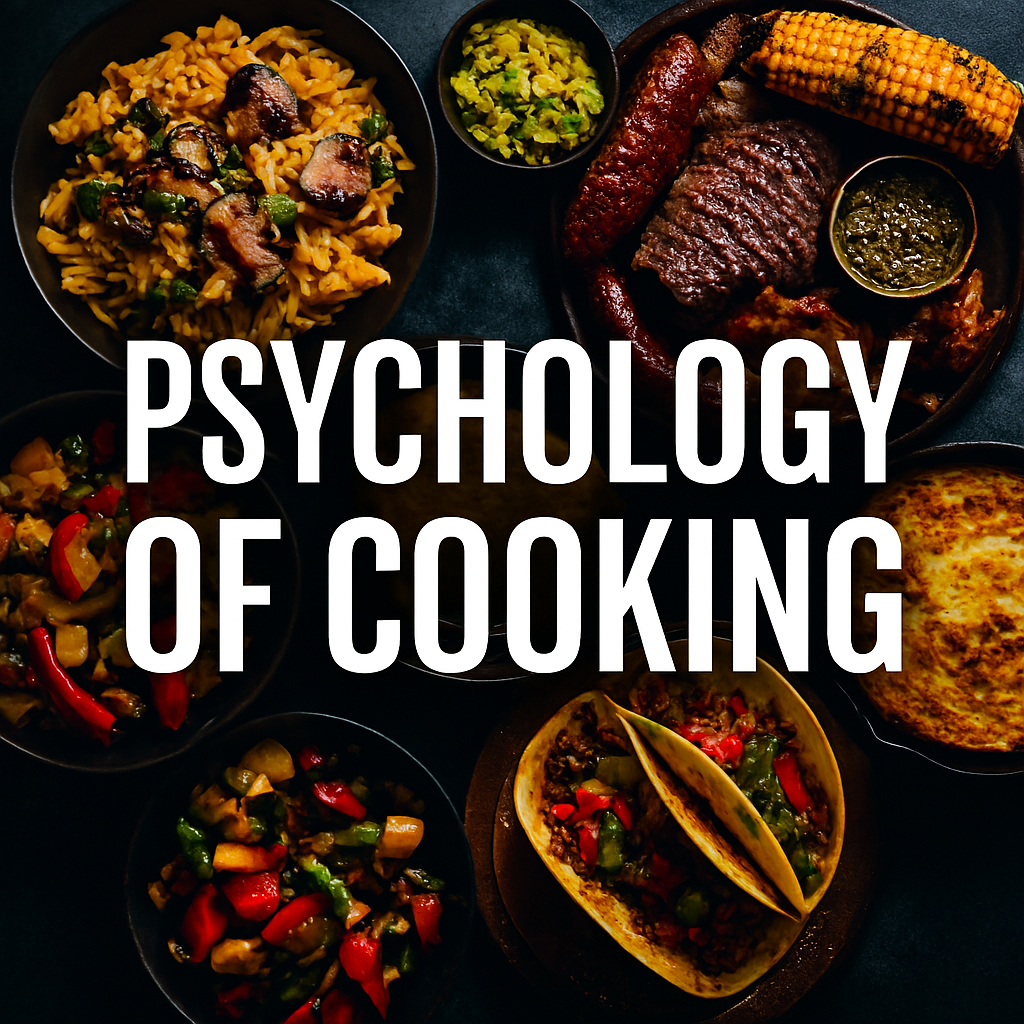
Cooking And Modern Lifestyle
Cooking within families reflects modern lifestyles that shape identity and adaptation. The psychology of modernity in cooking is tied to taste, convenience and clever innovation. Families worldwide adapt recipes to reflect busy schedules. Cooking becomes a way to balance tradition with modern demands. Families use cooking to celebrate efficiency and creativity.
Recipes carry symbolic meaning of adaptation to modern life. Cooking rituals provide continuity during lifestyle changes. Families worldwide rely on cooking to sustain identity in modern contexts. Cooking together strengthens bonds despite busy routines. The act of cooking reflects adaptation to modern values. Families use cooking to teach children about balance. Modern cooking reinforces identity and belonging. Families adapt recipes to reflect convenience and innovation. Cooking rituals provide comfort during lifestyle transitions. The psychology of modernity shows how food reflects adaptation and resilience.
- Cooking reflects convenience and innovation
- Families adapt recipes to busy schedules
- Cooking balances tradition with modern demands
- Families celebrate efficiency through cooking
- Recipes symbolize adaptation to modern life
- Cooking rituals provide continuity during change
- Families sustain identity in modern contexts
- Cooking strengthens bonds despite routines
- Cooking reflects modern values
- Families teach balance through cooking
- Modern cooking reinforces belonging
- Families adapt recipes to convenience
- Cooking provides comfort during transitions
- Modernity embedded in cooking strengthens resilience
- Food reflects adaptation to lifestyle
Cooking And Future Generations
Cooking within families reflects hopes and aspirations for future generations. The psychology of future orientation in cooking is tied to continuity and innovation. Families worldwide adapt recipes to reflect evolving values. Cooking becomes a way to prepare children for future responsibilities. Families use cooking to teach resilience and creativity. Recipes carry symbolic meaning of continuity and hope. Cooking rituals provide structure for future identity. Families worldwide rely on cooking to sustain heritage across generations.
Cooking together strengthens bonds through shared vision. The act of cooking reflects adaptation to future values. Families use cooking to celebrate innovation. Future‑oriented cooking reinforces identity and belonging. Families adapt recipes to reflect aspirations. Cooking rituals provide comfort during transitions to future roles. The psychology of future orientation shows how food reflects continuity and resilience.
| Future Focus | Cooking Role | Psychological Impact |
|---|---|---|
| Innovation | Fusion recipes | Reflects creativity |
| Heritage | Traditional dishes | Preserves identity |
| Education | Cooking lessons | Builds resilience |
| Sustainability | Eco‑friendly meals | Promotes responsibility |
| Globalization | Diverse cuisines | Strengthens belonging |
Conclusion – Cooking As A Universal Language Of Care
The psychology of family cooking worldwide reveals a universal truth that transcends borders and generations. Cooking is not merely about sustenance but about emotional, cultural, and social connection. Families use cooking to preserve memory, regulate emotions, teach values, and celebrate milestones.
Across cultures, cooking rituals provide resilience during crises and continuity during times of change. Shared kitchens become classrooms, therapy spaces, and sites of transformation. The act of cooking together bridges generations and cultures. Cooking fosters equality by reshaping gender roles and encouraging cooperation. It also strengthens resilience by providing comfort during hardship and joy during celebration. Families worldwide rely on cooking as a language of care that nourishes both body and soul.
Cooking rituals are deeply embedded in cultural identity and memory. They act as anchors that preserve heritage while adapting to modern life. Cooking together creates shared stories that become part of family history. The psychology of cooking shows how food is a living archive of human experience. Cooking is thus a universal language that speaks through taste, tradition, and togetherness.
Join The Discussion
Family cooking is a universal practice that carries psychological depth across cultures and generations. It is a ritual that preserves memory, regulates emotions, and strengthens identity. Cooking together provides resilience during crises and joy during celebrations. Families worldwide rely on cooking as a language of care that nourishes both body and soul.
The psychology of cooking shows how food is a living archive of human experience. Cooking rituals are deeply embedded in cultural identity and memory. They act as anchors that preserve heritage while adapting to modern life. Cooking together creates shared stories that become part of family history. The act of cooking bridges generations and cultures, fostering empathy and belonging. Cooking fosters equality by reshaping gender roles and encouraging cooperation. It also strengthens resilience by providing comfort during hardship and joy during celebration. Families use cooking to celebrate milestones and reinforce traditions. Cooking rituals provide structure and continuity in uncertain times. The psychology of family cooking worldwide reveals how food is more than sustenance—it is a universal language of care.
- Share your own family cooking traditions
- Reflect on how cooking shapes your identity
- Discuss how cooking provides resilience in crisis
- Explore how cooking rituals regulate emotions
- Celebrate the role of cooking in cultural heritage
- Highlight how cooking reshapes gender roles
- Examine how cooking strengthens social bonds
- Share stories of cooking during celebrations
- Reflect on cooking as a teaching tool
- Join the conversation about cooking as a universal language
#FamilyCooking #PsychologyOfFood #CulturalIdentity #SharedMeals #CookingTogether #GlobalTraditions #FoodAndMemory #CookingPsychology #ResilientFamilies #CookingAndBonding

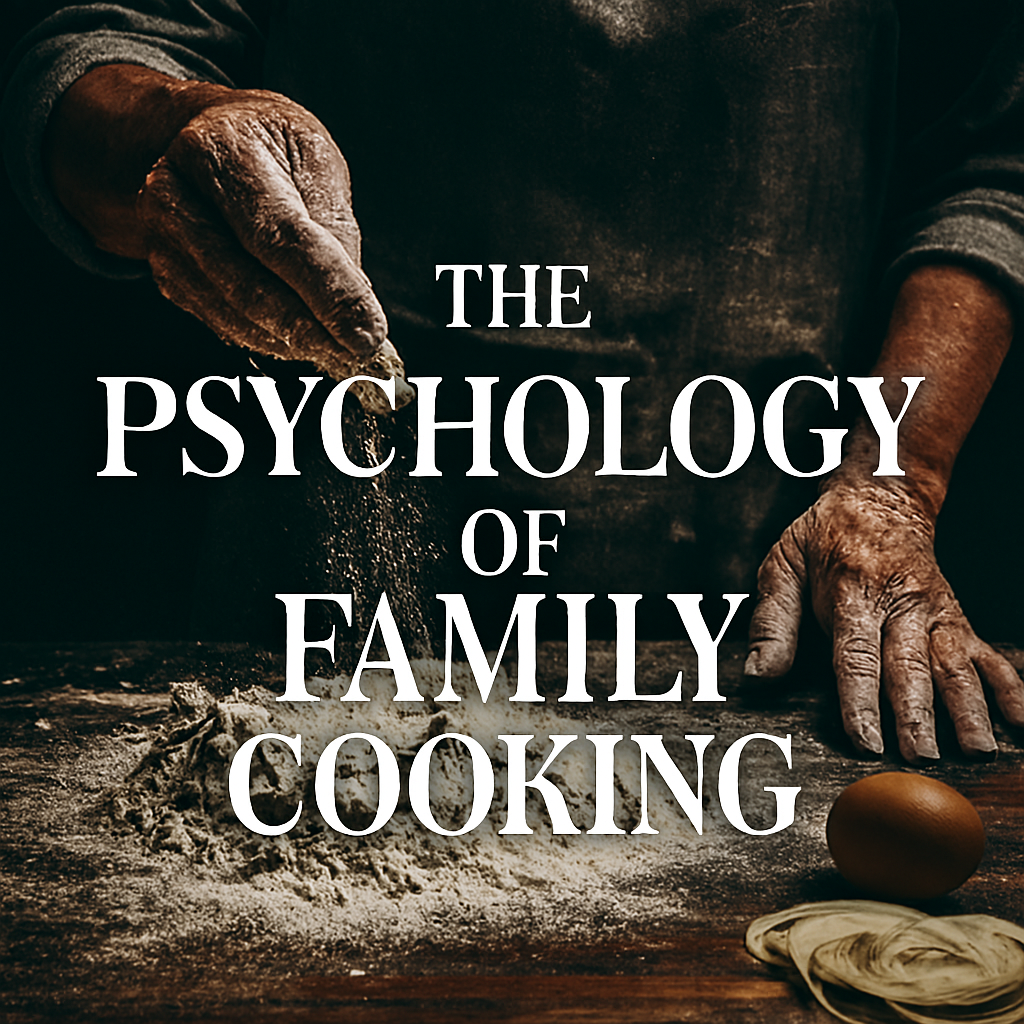




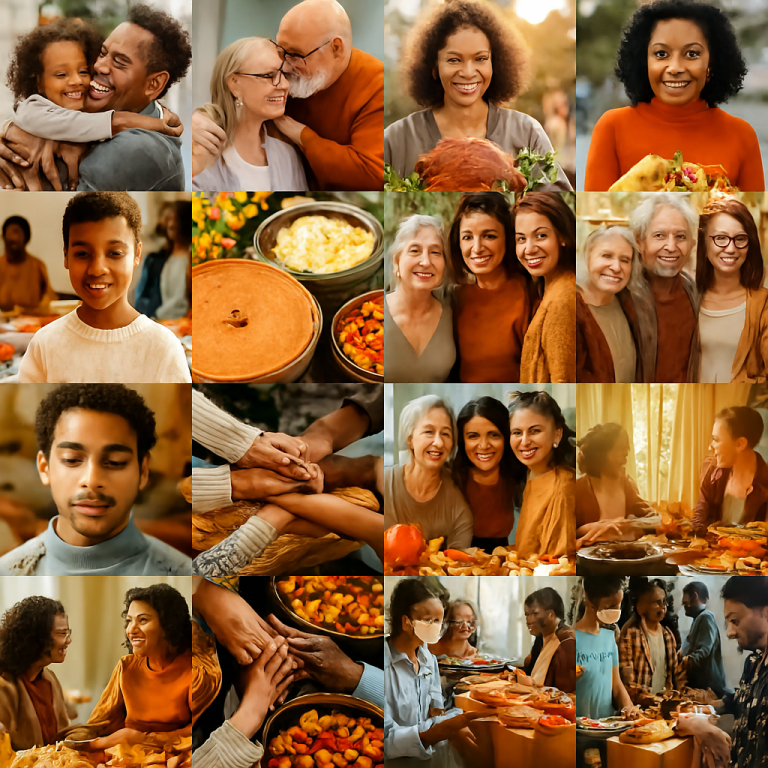

Your writing always inspires me to learn more.
This gave me a lot to think about. Thanks for sharing.
Posts like this are why I keep coming back. It’s rare to find content that’s simple, practical, and not full of fluff.